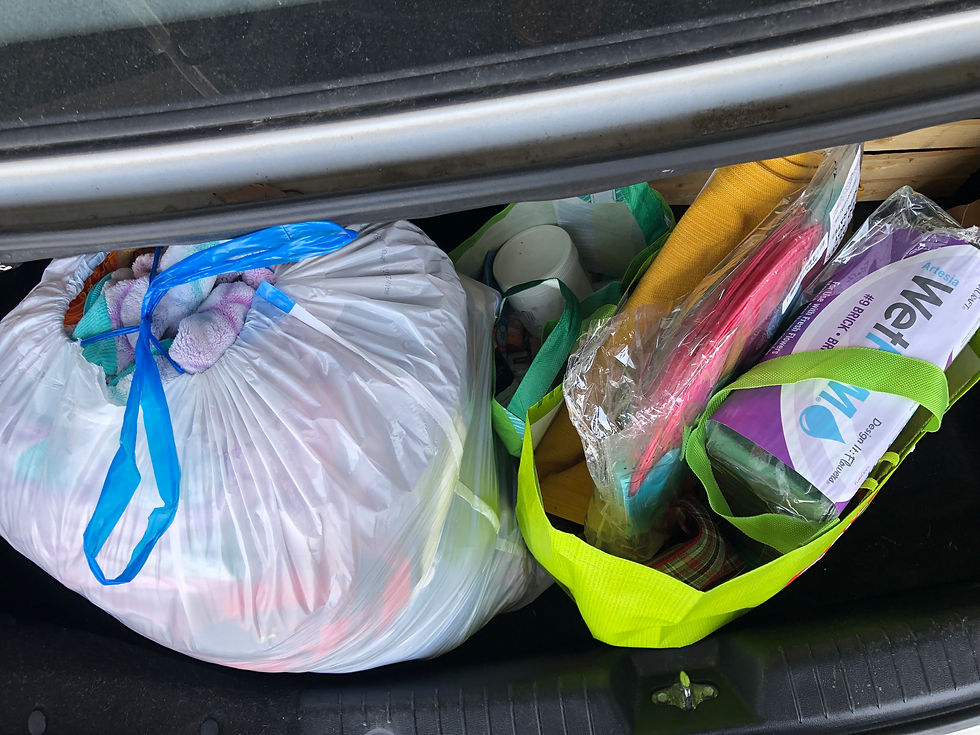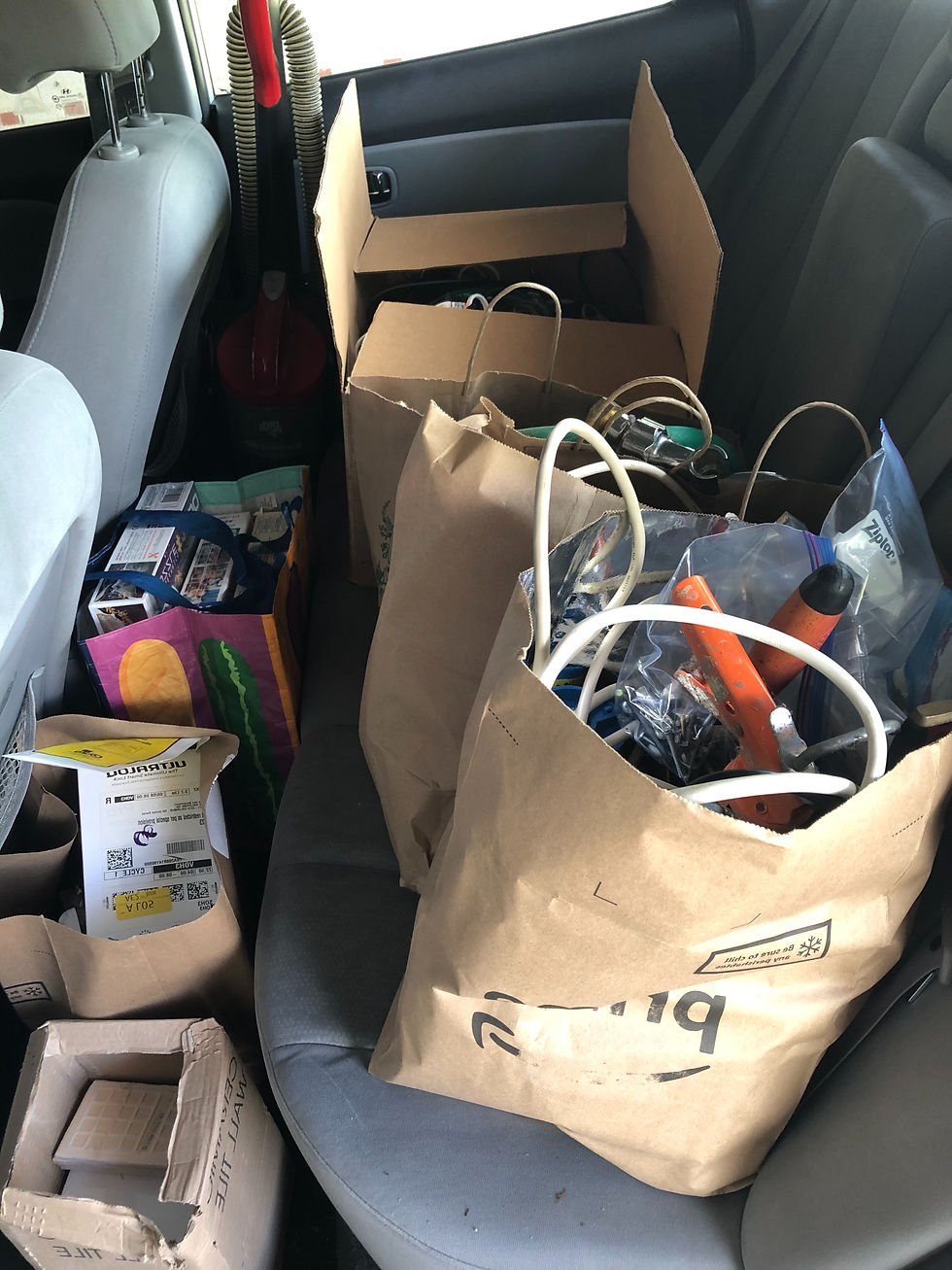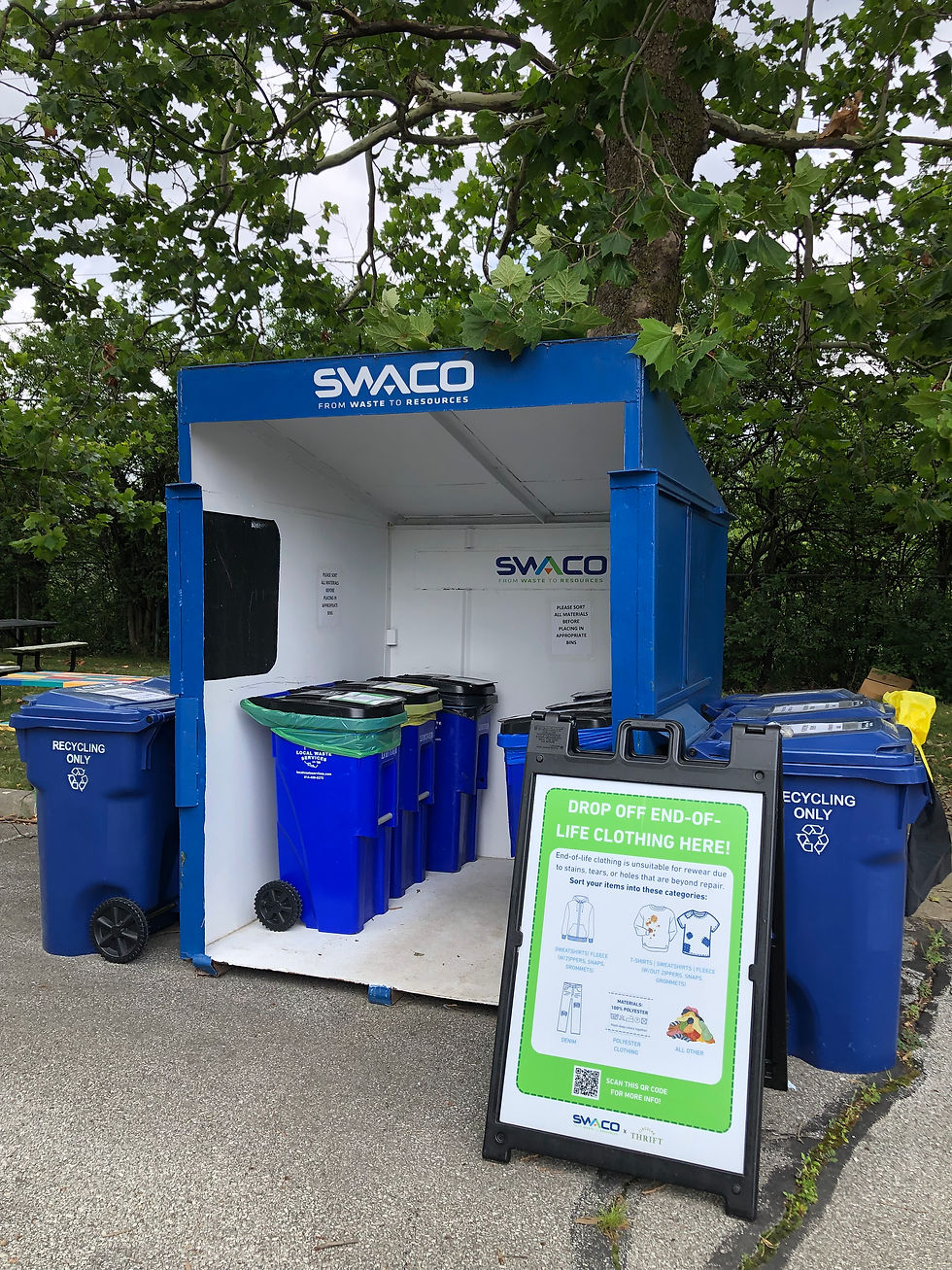Clutter Blindness and Our Homes
- Tabi (they/them)

- Jul 17, 2025
- 5 min read

July 2025 - Organization Pending Newsroom - Upper Arlington, Ohio

Welcome to Organization Pending's Newsroom, July 2025: Clutter Blindness and Our Homes.
This month, Let's Talk About Covid and Clutter - the effect it's still having on our homes, a discussion on why clutter sometimes suddenly appears, tips to help you get started on your decluttering journey, and three steps for implementing the Container Concept. Don't miss the news about Owner/Operator Tabi Berkey's recent Hidden Gem feature in VoyageOhio, and Upper Arlington Updates for end-of-life textile recycling!
Thank you for reading! Subscribe to receive the Newsroom in your email each month, and follow Organization Pending on Facebook and Instagram for local decluttering opportunities and home organizing tips!
If you have an upcoming event, resource, or professional the community should know about, contact Organization Pending.
Let's Talk About Covid and Clutter Tabi Berkey
The 2020 pandemic changed how many of us lived in our homes, and changed our relationships to our spaces. Suddenly, we all needed more space in our homes for everyone. Many of us (and our kids) needed open, clear living areas, and space to store back stock and ever-growing collections of maybe-this-can-help-entertain-the-kids. These stressors also paired with the scarcity mindset in society from the pandemic, leading many of us to buy in bulk, and triggering a need to hold onto things in case they wouldn't be available in the future.
The psychological impacts of uncertain times meant we quickly gathered a lot of stuff to make sure our families were provided for as best as we could long-term, including attempting to bring as many outside activities to the home as possible, creating a kind of psychological safety net for ourselves and our families. With more activities and more things, we could figure out how to make our homes expansive, encompassing parts of the world we couldn’t physically go to.

And at times we’re still learning to trust there will be enough. But many of you are frustrated with ever-growing piles, not quite sure what’s in those bins anymore. At this point, time has taken over, adding every day items to the mix, and no one is quite sure where new items' homes are supposed to be. Possibly the kids have outgrown the toys and extra activities after five years. Maybe you've let go of some of the hobbies you picked up during the pandemic. And it’s highly likely that many back stocks of food, hand sanitizer, and other items with expirations are needing to be decluttered instead of organized.
How did we get here, and why am I just seeing the clutter now?
Clutter blindness, and busy lives that keep families on the move contribute to miscellaneous bins in the basement that are suddenly full, garages we can't park in, and cabinets we can't shut. In Habituation, "clutter blindness", and hoarding with Dr Jan Eppingstall of Stuffology, episode 147 of That Hoarder: Overcome Compulsive Hoarding, Dr Eppingstall discusses habituation and clutter blindness - the idea that we become accustomed to sensations and sights, or even feelings, over time. When clutter exists somewhere, it's easy to add to without your brain registering it, because you're used to seeing it there. This is why "all of the sudden" we look around and realize how overwhelmed we are by certain areas of our homes.

We also didn't experience a hard shift from life at home to life in the open again. There was a long period of uncertainty, and holding onto the extra supplies and back stock items made sense, creating stability when so much was out of our control.
How can we shift our mindsets?
Back stock isn't the underlying issue. In every home I’ve been in, including my own, figuring back stock solutions is one of the goals from the beginning. The underlying issue is shifting our mindsets from long-term stockpiling, to realizing how many of a specific item our family is able to use in a month. Realizing your family only uses two bottles of body wash a month, but your current back stock is 20, helps you realize you're going to save money for a few months while your family works through the existing supply.
Back stock food can be another holdover from the pandemic. After decluttering expired items, you're able to organize like items with like, and determine how much space is needed for each category: breakfast, snacks, desserts, dinner items, baking, etc. Again, the focus here is “this is the amount my family needs to last x amount of time”.

Sometimes the goals for our homes and the physical limitations of our spaces are the things that tell us how many of what items we can keep. Decluttering expert Dana K. White refers to this as the Container Concept. Below are three steps I use with Organization Pending clients to help them see the space in their homes in a different way, assisting them in implementing this Concept.
Declutter all easy decisions from a space.
Organize "keep" items into the space.
Did you declutter so many items you have more than enough room to add in the "maybe" items? Have you already fallen in love with your new systems and don't want to add anything else to it? Stay hydrated, and take a break - decision fatigue is real, and this could be a good stopping point for the day. Help keep yourself on track by scheduling time for these last decisions within the next two weeks.
Need a compassionate partner on your home organizing journey? Tabi (they/them) schedules free virtual assessments weekly - reach out at organizationpending.com/contact to discuss your goals. Nervous about taking that first step? Home organizers get it! Tune in for an in-depth interview of what a home organizer is thinking during the home organizing process, from assessment to sessions, in episode 175 of That Hoarder: Overcome Compulsive Hoarding, Taking the scary first steps: the courage to call a professional organiser, with Jasmine Sleigh.
VoyageOhio's Hidden Gems Feature: Organization Pending Company News

Organization Pending's Owner/Operator Tabi Berkey (they/them) was named a Hidden Gem in VoyageOhio's magazine on July 2!
"I knew home organizing was my next career path when I realized it hit all the highlights of my dream career, including working with clients and their families one-on-one, creating a real difference in their lives. So many clients express that they feel like they can breathe again in their homes, their mental space is less cluttered as their homes become more functional, and their whole home organizing goals wouldn't have been accomplished without an accountability partner and professional to see the potential of their homes in a new way." -Tabi Berkey
Check Out Tabi Berkey's Story for more, including what they like best about our city!
Upper Arlington Updates: End-of-Life Textile Recycling

"The average person throws away around 70 pounds of clothing each year, much of which ends up in landfills."
Until August 31st, drop off your stained and ripped end-of-life clothing at the Upper Arlington Public Service Center, 4100 Roberts Road, in the parking lot (open 24/7).
Eligible items for textile recycling:
denim
sweatshirts & fleece (with hardware like zippers/buttons)
t-shirts & sweatshirts (without hardware)
100% polyester items
other - sheets, towels, blankets, socks, underwear, and bras (no underwire)
Thank you to The City of Upper Arlington, in partnership with SWACO, Circular Thrift, and Sustainable Upper Arlington, for providing this pilot program!




Comments